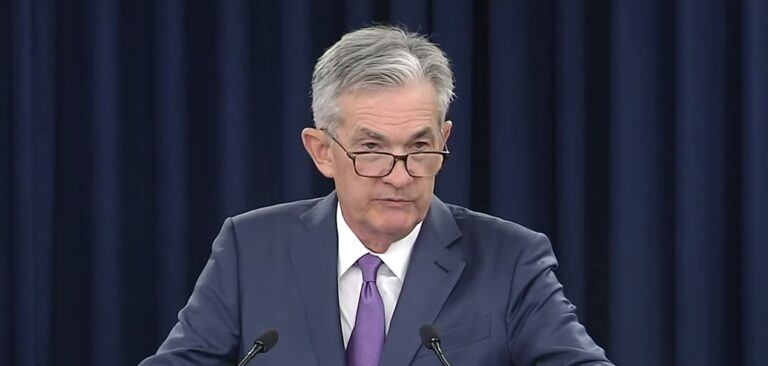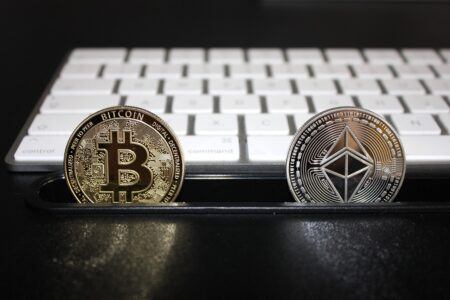On Monday (October 19), Federal Reserve Chair Jerome H. Powell spoke about Central Bank Digital Currencies (CBDCs) at a (virtual) International Monetary Fund (IMF) seminar event titled “Cross-Border Payments—A Vision for the Future”.
The purpose of this seminar was to “discuss potential solutions to enhancing cross-border payments, the benefits and risks of cross-border use of digital currencies, and their macro-financial implications.
The IMF, which was established on 27 December 1945, is “an organization of 189 countries, working to foster global monetary cooperation, secure financial stability, facilitate international trade, promote high employment and sustainable economic growth, and reduce poverty around the world.”
Its main purpose is “to ensure the stability of the international monetary system—the system of exchange rates and international payments that enables countries (and their citizens) to transact with each other.”
Fed Chair Powell spoke about CBDCs as part of a panel moderated by Kristalina Georgieva, the Managing Director of the IMF.
Powell explained why the Federal Reserve does not believe that the U.S. needs to be one of the first countries to introduce a CBDC (i.e. a digital dollar):
“We have not made a decision to issue a CBDC, and we think there’s a great deal of work yet to be done… In fact, I actually do think that CBDC is one of those issues where it’s more important for the United States to get it right than it is to be first…
“Given the dollar’s important role globally, it’s essential that we remain on the frontier of research and policy development. The dollar is the world’s principal reserve currency and there continues to be large global demand for Federal Reserve notes.”
Powell also commented on some of the risks associated with CBDCs:
“In addition to assessing the benefits there are also some quite difficult policy and operational questions… Just to mention a few, I would mention the need to protect a CBDC from cyber attacks and fraud; the question of how a CBDC would affect monetary policy and financial stability; and also how could CBDC prevent illicit activity, while also preserving user privacy and security.”
On August 23, the IMF explained via a tutorial video what the problems are with existing centralized payment solutions, what cryptocurrencies are, what their pro and cons are, and how they could be the future of money.
In the video it released (as part of a tweet), the IMF said:
“When we buy or sell things, the payment is usually processed by bank or credit card company.
“Problem number one: the companies often take a cut of the transaction. Two, we have to trust these companies to protect their sensitive data from hackers. Three, most international payments take a long time and are expensive.
“To solve these problems, we could use a special currency that is secure and based on science of cryptography, which is a way of protecting information using mathematics.
“This special type of currency is called a cryptocurrency, and only exists in computer networks.
“When you send someone the special currency, the money goes directly to them, removing the middleman, and at the same time the transaction is broadcast to the entire network and recorded in a permanent way, which means it’s almost impossible to fool the system.
“Costs of making payments are lower, transactions are faster, especially across countries, and even those people around the globe who don’t have bank accounts can buy or sell goods and participate in the globally economy.
“However, there are some risks.
“The transactions in most cryptocurrencies are anonymous. Some cryptocurrencies can even be untraceable. This can make it easier for the bad guys to make payments without being noticed. If you lose your password, you could lose all your money. At the moment, cryptocurrencies are highly volatile; they can’t process large amounts of transactions quickly yet; and they’re not even widely accepted.
“If we can counter the risk, then this new technology, or some variation of it, can completely change the way we sell, buy, save, invest, and pay our bills.
“And who knows, this could be the next step in the evolution of money.”








